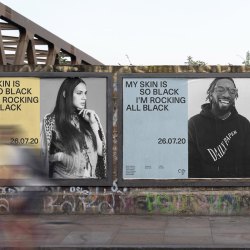Marketing has long been obsessed with change, whether that’s how technology disrupts our behaviour or how one generation varies from another. If anything, COVID has exacerbated this tendency.
McKinsey have gone so far as to claim that “COVID-19 has changed B2B sales forever”.
Ad Age, not content with limiting their claims to a subsection of marketing, stepped up the hyperbole: “COVID has changed marketing forever”.
These are certainly forthright assertions. But that’s all they are — assertions.
If we look at the supporting evidence, the case for a radically changed consumer becomes flimsier.
From assertion to evidence
The most accurate way to track shifting motivations are studies that ask the same question again and again. These are preferable to snapshots: one-off questions about changing motivations are flawed as they rely on memories being accurate. And recollections are often fuzzy.
If we prioritise repeated measures of customer motivation, we see far more consistency.
Consider the analysis of Kantar’s TGI survey that Harry Guild and Dean Matthewson at BBH Labs conducted recently.
TGI is a valuable dataset. Each quarter the survey asks 24,000 people about their beliefs, attitudes, and behaviours. Since 1985, they have asked people about the extent to which they agree with a variety of statements. These statements cover a wide range of topics, from our fundamental motivations (“Family is more important than career”) to our shopping behaviours (“When I find a brand that I like I stick to it”) to our broader attitudes (“I don’t want to be told what to do”).
Guild and Matthewson identified 139 statements that have been asked in a consistent format between 2000 and 2020 and noted how much the answers had changed. That data is covered in the scatter plot below, with each triangle representing the percentage point change for one of the statements.
Their key finding was those most drivers of behaviour don’t change.
Over 20 years, 45% of topics saw opinion change by less than 5% points.
For the great majority of topics (74%), the change was less than 10% points.
That’s a remarkable degree of consistency, considering the tumultuous events that have impacted society over the last twenty years.
And this analysis is not an outlier.
Andrew Tenzer at Reach Solutions has run two surveys investigating the motivations and drivers of the modern mainstream. (Tenzer defines the modern mainstream as the middle 50% of the population by household income).
Crucially for us, his surveys were conducted either side of the COVID outbreak — 1299 people were questioned in July 2018 and another 547 in April 2020.
This research allows us to quantify whether people’s key concerns were shaken up by the dramatic events of COVID. The summary of the results, presented in a spider diagram below, paints a picture of consistency.
The fundamental drivers of human behaviour are remarkably consistent.
The greatest marketers have always known this. As Bill Bernbach said:
It took millions of years for man’s instincts to develop. It will take millions more for them to even vary. It is fashionable to talk about changing man. A communicator must be concerned with unchanging man, with his obsessive drive to survive, to be admired, to succeed, to love, to take care of his own.
Our motivations and meaning don’t bounce around from one year to the next. They’re hardwired.
Or as former marketing professor Mark Ritson said:
If you study the history of marketing for more than three seconds, you’ll realise our history is not filled with death, it’s filled with evolution and change. Death rarely happens in the media or in marketing.
Why does this matter? Well, our fascination with ephemera has an opportunity cost. If we fixate on the latest fad, it means we’re paying less attention to the fundamental drivers of human behaviour.
So, if I have one wish for marketing in 2022 it’s a reset of our priorities: more of a focus on what doesn’t change.
Featured image: Joshua Rawson-Harris / Unsplash































